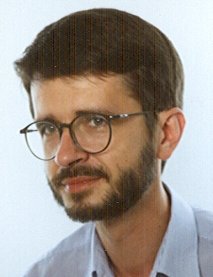Andrzej Wišniewski, born in Poznan, Poland, in 1958. Ph.D. from Adam Mickiewicz University, Poznan. Professor of Logic and Philosophy at Tadeusz Kotarbinski Pedagogical University, Zielona Góra.
Mellon Fellow (1 February 1997 – 30 June 1997)
During the five months I spent at NIAS I was able to be more productive in terms of research and writing than I had anticipated. I had two main goals for my NIAS stay. The first was to write an article devoted to the analysis of some explanatory procedures. This article, titled “An erotetic approach to explanation by subsumption under an abnormic law”, was successfully completed. It contains, amongst other things, a logical description of some schematic train of thought which enables the selection of the correct answer to an explanation-seeking why-question among the relevant candidates. The argumentative steps of this train of thought are either standard deductive arguments or valid erotetic arguments in the sense of inferential erotetic logic (i.e. logic of questions) developed in my previous publications.
My second goal was the completion of a paper devoted to some aspects of the problem of reducibility of questions. This also was successfully achieved. In the paper “Reducibility of safe questions to sets of atomic yes-no questions” I showed, among other things, that each quantifier-free safe question is reducible to a set of epistemologically and logically prior questions, that is, to a set of atomic yes-no questions; moreover, I proved that if a certain condition is satisfied, then each safe question is reducible in this way. This paper was completed first and has already been accepted for publication.
During my stay at NIAS an idea of a third paper came to my mind; this paper, entitled “Logic and sets of situations”, presents a new approach to semantics of propositional languages. In particular, the concepts of situational model and situational tautology are introduced and it is shown that Classical Propositional Calculus is complete with respect to the proposed semantics. The approach presented in this paper differs from other approaches developed within the situation theory research programme.
